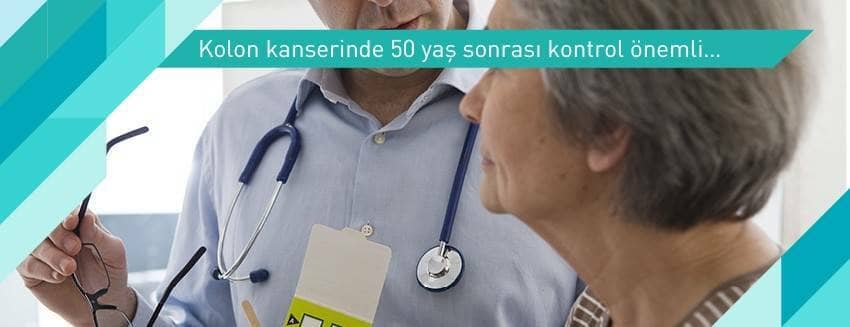
According to experts who emphasize the importance of early diagnosis, it is necessary to pay attention to changes in bowel habits, rectal bleeding and unexpected weight loss. Recommending routine check-ups over 50 years of age, experts emphasize that the 5-year survival rate is 93% in early detection.
General Surgery Specialist Assist. Assoc. Prof. Dr. Ahmet Murat KOCA from Üsküdar University NPISTANBUL Hospital emphasized the importance of early diagnosis, stating that colon cancer is more common over the age of 50.
Cancer is the third leading cause of death
Stating that colorectal cancer, also known as "colon cancer", is the most common cancer in the gastrointestinal structure, Assist. Assoc. Prof. Dr. Ahmet Murat KOCA said, "140 thousand new diagnoses are made in the United States and more than 50 thousand patients die annually for this reason. It is the third deadly cancer. Screening programs have reduced the incidence rate and early diagnosis has reduced the mortality rate."
Stating that more than 90% of colon cancer cases are seen over the age of 50, Assist. Assoc. Prof. Dr. Ahmet Murat KOCA said that other risk factors are familial, environmental, eating habits, inflammatory bowel disease. Assist. Assoc. Prof. Dr. Ahmet Murat KOCA said:
"20% of colorectal cancers have known familial colorectal cancer. Understanding these familial disorders enables genetic tests for early diagnosis. High consumption of animal fat, fiber-poor diet, alcohol use and obesity are among the factors that increase colorectal cancer and its lethality. The prevalence and severity of colitis increases in proportion to the risk."
Stating that smoking is among the important risk factors, Assist. Assoc. Prof. Dr. Ahmet Murat KOCA said, "It increases the risk of polyp development, especially in smokers over 35 years. As a result of the connection of the urinary tract to the large intestine, the risk of both adenoma and carcinoma formation increases in patients. Radiotherapy applied to the lower abdomen increases the development of rectal cancer."
Pay attention to bowel habits!
Stating that colon cancer can manifest itself with some symptoms, Assist. Assoc. Prof. Dr. Ahmet Murat KOCA said, "It is necessary to pay attention to changes in bowel habits such as constipation or diarrhea, rectal bleeding, bloody stools, black soft stools, unexpected blood loss, unexpected weight loss."
Stating that polyps formed in the large intestines must be followed up, Assist. Assoc. Prof. Dr. Ahmet Murat KOCA warned, "All polyps should be followed up, gene tests should be performed and pathologically named."
Get checked after 50 years of age
Stating that screening programs are recommended to start at the age of 50 in the medium-risk population, that is, in people without symptoms, family history, personal history of colon polyps or colorectal carcinoma, Assist. Assoc. Prof. Dr. Ahmet Murat KOCA made the following recommendations:
"Annual fecal occult blood (FEC) test, flexible sigmoidoscopy every 5 years, barium enema every 5 years or colonoscopy every 10 years should be performed. Patients with risk factors should be screened earlier and more frequently. Patients with any of the above-mentioned symptoms related to the gastrointestinal tract should undergo a complete evaluation with colonoscopy. In patients with adenomatous polyps, colonoscopy within 3 years after colonoscopy at the first detection. Colonoscopy every 5 years if there are no more polyps. If there are polyps, colonoscopy should be performed every 3 years, and if there are more than 5 polyps, colonoscopy should be performed every year. For familial colorectal cancer in first-degree relatives, colonoscopy is recommended every 5 years, starting at age 40 or 10 years before the youngest affected relative. If the number of affected family members increases, the frequency increases especially under the age of 50."
Early diagnosis prolongs life
Stating that the treatment goal in colon cancer is to remove the primary tumor together with its lymphovascular structures, Assist. Assoc. Prof. Dr. Ahmet Murat KOCA said, "The general condition of the patient, the characteristics of the cancer, comorbidities determine the treatment methods, the order and the work to be done. That part is planned with multidisciplinary medical evaluations. Survival times are proportional to early diagnosis. While the 5-year survival rate is 93.2% in early cases, this rate decreases in delayed cases. Knowing the risk factors, not neglecting examinations and tests, catching it early ensures the necessary treatment."
